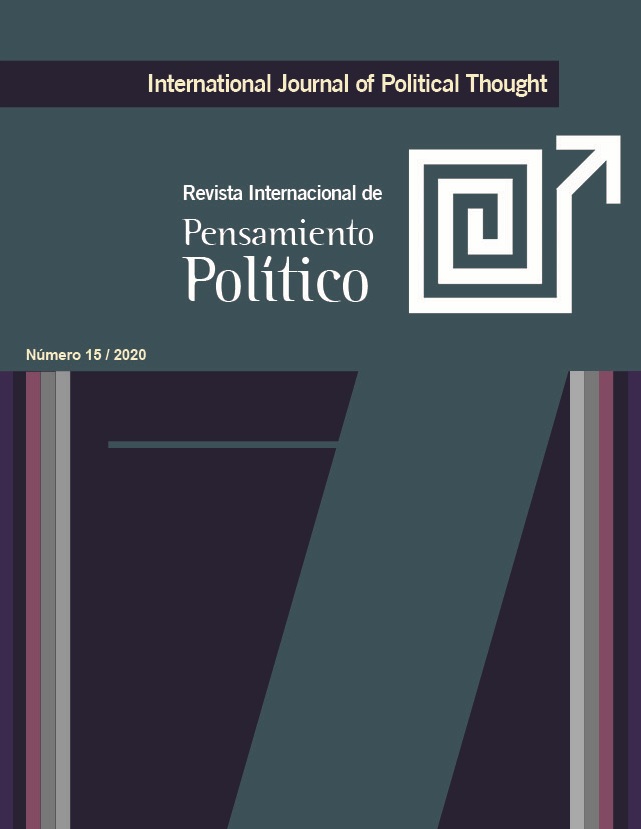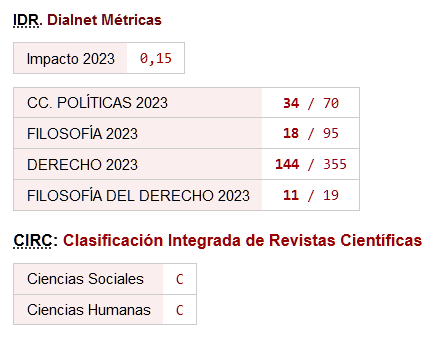Universal Basic Income: Design Considerations and Risks in its Implementation
DOI:
https://doi.org/10.46661/revintpensampolit.5595Keywords:
Universal Basic Income, social protection, conditionalityAbstract
The Universal Basic Income proposal is becoming more and more known both in the academic field and outside it and that has led it to receive more and more attention and also more criticism. It is hardly questionable that the Universal Basic Income has very important advantages compared to other types of public social protection benefits: its coverage reaches the entire population and the economic security and freedom it offers allows no one to be forced to accept poor and precarious jobs to cover their basic needs. In addition, all this can be achieved at an affordable cost and through a relatively simple and fast application (especially compared to many conditional social benefits). However, the start-up of a Universal Basic Income is not exempt from questions or important risks to take into account. The aim of this work is to identify and analyze some of them, with the ultimate goal of overcoming them to perfect a measure that already has enormous economic and social potential.
Downloads
References
Arcarons, J., Raventós, D., & Torrens, L. (2017). Renta básica incondicional. Una propuesta de financiación racional y justa. Ediciones del Serbal: Barcelona.
Autor, D. H. (2015). Why are there still so many jobs? The history and future of workplace automation. Journal of Economic Perspectives, 29 (3), 3–30. https://doi.org/10.1257/jep.29.3.3
de la Torre, L., Álvarez, E., & Espí, J. A. (2019). Protagonismo de las materias primas minerales en el desarrollo del vehículo eléctrico. Visión Industrial, 411, 99–112.
de Wispelaere, J., & Stirton, L. (2011). The administrative efficiency of basic income. Policy and Politics, 39 (1), 115–132.
https://doi.org/10.1332/030557311X546352
de Wispelaere, J., & Stirton, L. (2012). A disarmingly simple idea? Practical bottlenecks in the implementation of a universal basic income. International Social Security Review, 65(2), 103–121. https://doi.org/10.1111/j.1468-246X.2012.01430.x
Garzón, E. (2015). Renta Básica, una medida con importantes inconvenientes. Viento Sur, 140 (Junio), 66–72.
Garzón, E. (2016). La Renta Básica Incondicional no es incondicional, digan lo que digan. La Marea, 43, 15-17.
Garzón, E. (2017). Los países que más robots tienen disfrutan de menos paro. La Marea, 46, 12-14.
Glencore. (2018). The EV revolution and its impacts on raw materials. Glencore, marzo, disponible online en https://iea.blob.core.windows.net/assets/imports/events/71/Session3Glencore.pdf
Gorle, P., & Clive, A. (2013). Positive Impact of Industrial Robots on Employment. International Federation of Robotics, Metramartecht, febrero, disponible online en https://robohub.org/wp-content/uploads/2013/04/Metra_Martech_Study_on_robots_2013.pdf
Iglesias, J. (2003). Las rentas básicas: el modelo fuerte de implantación territorial. El Viejo Topo: Barcelona.
Jones, S. E. (2006). Against technology: From the Luddites to Neo-Luddism. In Against Technology: From the Luddites to Neo-Luddism. Routledge: London https://doi.org/10.4324/9780203960455
Latouche, S. (2006). Le pari de la décroissance. Fayard: París.
Linton, D. (1992). The luddites: How did they get that bad reputation? Labor History, 33(4), 529–537. https://doi.org/10.1080/00236569200890281
Navarro, V. (2018). Las falsedades del supuesto apocalipsis robótico: ¿el fin del trabajo? Blog de Público.es, Disponible online en https://blogs.publico.es/vicenc-navarro/2018/05/01/las-falsedades-del-supuesto-apocalipsis-robotico-el-fin-del-trabajo/
Noguera, J. A. (2000). La renta básica y el Estado del Bienestar en España. Revista Internacional de Sociología, 58(26), 65–95.
Noguera, J. A. (2015). ¿Renta básica universal VS. renta garantizada? Algunos mitos y leyendas. Agenda Pública El País, disponible online en http://agendapublica.es/renta-basica-universal-vs-renta-garantizada-algunos-mitos-y-leyendas/
Nübler, I. (2016). New Technologies: A Jobless Future or Golden Age of Job Creation? Working Paper No. 13.
Pérez, C. (2015). Renta Básica Universal: La peor de las soluciones a excepción de todas las demás. Clave intellectual: Madrid.
Pritchett, L. (2020). The future of jobs is facing one, maybe two, of the biggest price distortions ever. Middle East Development Journal, 12(1), 131–156. https://doi.org/10.1080/17938120.2020.1714347
Rabeh, M., Arman, H., & Mousa, S. (2017). The Fourth Industrial Revolution (Industry 4.0): A Social Innovation Perspective. Technology Innovation Management Review, 7(11), 12–20.
Rainie, L., & Anderson, J. (2017). The Future of Jobs and Jobs Training. Pew Research Center, disponible online en https://www.pewresearch.org/internet/2017/05/03/the-future-of-jobs-and-jobs-training/
Red Renta Básica. (2020). ¿Qué es la RB? Disponible online en http://www.redrentabasica.org/rb/que-es-la-rb/
Stewarts, I., Debapratim, D., & Cole, A. (2017). Technology and people: The great job-creating machine. Deloitte, disponible online en https://www2.de-loitte.com/content/dam/Deloitte/uk/Documents/finance/deloitte-uk-technology-and-people.pdf
Taibo, C. (2019). El decrecimiento explicado con sencillez. La Catarata: Barcelona.
Torres, J. (2019). La renta básica: ¿Qué es, cuántos tipos hay, cómo se financia y qué efectos tiene? Deusto: Barcelona.
World Economic Forum. (2017). The Future of Jobs Report 2018. In Economic Development Quarterly. https://doi. org/10.1177/0891242417690604
Xu, M., David, J. M., & Kim, S. H. (2018). The fourth industrial revolution: Opportunities and challenges. International Journal of Financial Research, 9(2), 90–95. https://doi.org/10.5430/ijfr.v9n2p90
Downloads
Published
How to Cite
Issue
Section
License

This work is licensed under a Creative Commons Attribution-NonCommercial-ShareAlike 4.0 International License.
Open access policy
Free and open access is allowed to any interested party to all the contents of the journal issues, free of charge, being able to print and transfer all the articles, with the only condition of specifying the source and authorship.
The journal: a) does not charge authorship costs for the processing of articles or for their submission, b) maintains copyright for authors without restrictions, c) facilitates authors to keep their publication rights without limitations.
The International Journal of Political Thought is an original work of the Laboratory of Political Ideas and Practices of the Pablo de Olavide University. All articles included in the Journal are original work of their respective authors. This Journal is freely offered to the scientific and academic community at no cost and releases the contents according to the license "Attribution-NonCommercial-ShareAlike 4.0 CC BY-NC-SA" of the Creative Commons project available in the following url: https://creativecommons.org/licenses/by-nc-sa/4.0/legalcode
If you wish to translate or compile any of the articles available here, please contact us at contacto












 ISSN: 1885-589X
ISSN: 1885-589X  Universidad Pablo de Olavide
Universidad Pablo de Olavide